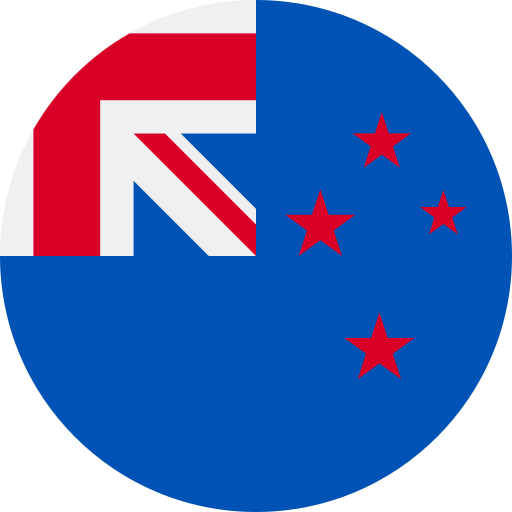Key Takeaways
- Distinct Vocabulary: New Zealand and British English feature unique words for common items, such as “jandals” vs. “flip-flops,” highlighting the importance of cultural context in language.
- Pronunciation Variances: Kiwis exhibit a flat vowel sound that can alter word pronunciation, impacting understanding; for instance, “fish” may sound like “fush.”
- Grammar Differences: Tense usage varies, with New Zealanders sometimes favoring simple past tense over present perfect, which can cause confusion in communication.
- Regional Slang and Idioms: Understanding slang expressions from both regions is crucial to avoid misinterpretations and enhance effective dialogue.
- Spelling Conventions: Notable spelling differences exist between the two dialects (e.g., “defence” vs. “defense”), which are important to recognize in professional contexts like writing or voiceovers.
- Cultural Nuances Matter: Recognizing these linguistic differences fosters better connections across cultures, essential for effective communication in various fields.
Ever wondered why a Kiwi might say “jandals” while your British friend insists on calling them “flip-flops”? The differences between New Zealand and British English can be both fascinating and confusing. With unique slang, pronunciation, and even grammar quirks, these variations can leave you scratching your head.
Overview of New Zealand and British English
New Zealand English and British English both stem from the same roots, yet they manifest unique characteristics. Vocabulary, pronunciation, and even grammar show distinct differences that can confuse or amuse speakers.
Vocabulary Variations
You’ll notice specific words differ significantly between these two forms of English. For instance, while New Zealanders use “jandals,” Brits refer to them as “flip-flops.” This divergence extends beyond casual terms; everyday language contains numerous examples where a simple word can represent completely different items or concepts.
Pronunciation Differences
Pronunciation varies widely between the two. Kiwis often exhibit a flat vowel sound in words like “fish” and “chips,” making it sound more like “fush” and “chups.” In contrast, British pronunciation tends to be more enunciated. These shifts can lead to misunderstandings if you’re not familiar with the accents.
Grammar Distinctions
Grammar also shows subtle contrasts. For instance, New Zealanders sometimes adopt American-style usages—like using the past simple tense instead of present perfect—while British speakers maintain traditional rules more closely.
Understanding these nuances enhances communication when interacting with either dialect. You may find that recognizing the differences enriches your conversations or even helps in fields such as voiceover work, where clear articulation is crucial for effective messaging.
Whether you’re navigating daily interactions or exploring opportunities in voice talent, being aware of these distinctions fosters better understanding and connection across cultures.
Vocabulary Differences
New Zealand and British English showcase distinct vocabulary that can surprise even seasoned speakers. Understanding these differences enhances communication, especially in fields like voiceover work where clarity is key.
Common Words and Phrases
Many everyday words differ between New Zealand and Britain. For instance, what Kiwis call “chilly bins” are known as “coolers” in Britain. Similarly, “togs” refers to swimwear in New Zealand while the British might say “swimming costume.” Even terms for food vary; Kiwis enjoy “pavlova,” a popular dessert not commonly referenced in Britain. These variations emphasize how cultural context shapes language.
Regional Slang and Idioms
Regional slang adds flavor to conversations but can lead to confusion for those unfamiliar with it. In New Zealand, you might hear someone say they’re feeling “gutted” after losing a game, akin to expressing disappointment. Conversely, the British might use “knackered” to describe exhaustion after a long day. Such idiomatic expressions enrich dialogue but also highlight potential misunderstandings—especially important for voice actors who aim for authentic delivery tailored to their audience’s expectations.
Understanding these vocabulary distinctions fosters better connections across cultures and ensures effective communication—crucial elements whether you’re engaging clients or delivering impactful voiceovers.
Pronunciation Variations
Pronunciation differences between New Zealand and British English significantly impact how speakers communicate. These variations can affect understanding, especially in voiceover work where clarity matters.
Vowel Sounds
Vowel sounds stand out as a primary difference. Kiwis often use a flat vowel sound, which makes words like “fish” and “chips” sound somewhat different compared to their British counterparts. In British English, the “i” in “fish” might carry a sharper tone. This distinction can create confusion for listeners unfamiliar with the nuances of Kiwi pronunciation. Understanding these subtleties is essential for voice actors aiming to connect authentically with their audience.
Intonation Patterns
Intonation patterns also vary between the two forms of English. New Zealanders typically employ a rising intonation at the end of statements, which may give sentences an almost questioning feel. This pattern contrasts sharply with British intonation, which often remains flat or drops at the end of statements. Such differences are crucial for voice talent to consider when delivering lines in either accent, ensuring that they convey the intended emotion accurately while engaging listeners effectively.
Recognizing these pronunciation variations enhances communication and helps foster better connections across cultures—especially vital in fields like voiceover work where precise articulation influences audience perception.
Grammar Differences
New Zealand and British English exhibit notable grammar differences that can impact communication, especially in professional settings like voiceover work. Understanding these distinctions enhances clarity and effectiveness, crucial for conveying messages accurately.
Tense Usage
Tense usage often varies between New Zealand and British English. In New Zealand, the present perfect tense may be used less frequently than in Britain. For example, while a Brit might say, “I’ve just eaten,” a Kiwi might opt for “I just ate.” This subtle difference can confuse listeners who expect consistent tense application. Additionally, New Zealanders sometimes use the simple past where Brits would prefer the present perfect. Being aware of these variations helps ensure effective communication in any voiceover project.
Prepositions and Articles
Prepositions and articles also differ significantly between these two forms of English. Kiwis might say “on the weekend” instead of “at the weekend,” which is common in Britain. Similarly, article usage can vary; for instance, some Kiwis drop articles more often than their British counterparts. Recognizing these nuances is essential when working with voice actors or artists to maintain authenticity in your content delivery.
Understanding these grammar differences fosters better connections across cultures and ensures that your message resonates with diverse audiences—especially important when selecting voice talent for projects targeting specific regions or demographics.
Spelling Conventions
Spelling conventions between New Zealand and British English exhibit notable differences that can impact clarity in communication. Understanding these distinctions helps avoid confusion, especially when engaging with audiences across regions.
Commonly Misspelled Words
Certain words frequently trip up speakers and writers. In New Zealand English, some common misspellings include:
- Defence vs. Defense: Kiwis prefer “defence,” while Brits use “defense.”
- Centre vs. Center: The former is standard in New Zealand, contrasting with the American spelling.
- Travelled vs. Traveled: Double L’s are favored in New Zealand English.
These differences could lead to misunderstandings if not addressed, particularly in professional contexts like voiceovers where precise language matters.
Influences on Spelling
Several factors influence spelling choices between these variants of English. Historical ties to Britain shape much of New Zealand’s linguistic landscape, leading to British spellings being prevalent. However, globalization and exposure to American media introduce alternative spellings that may creep into everyday usage.
You might notice that certain terms can differ based on local preferences or trends—especially in creative fields such as voice acting where artists often blend influences for a unique style. Recognizing these subtle shifts allows you to communicate more effectively with diverse audiences and ensures your message resonates clearly across borders.
Conclusion
Understanding the differences between New Zealand and British English enriches your communication skills. With unique slang pronunciation grammar and spelling variations you’ll find yourself navigating these distinctions with ease. Whether you’re working in voiceover or simply interacting with Kiwis appreciating their linguistic quirks can foster better connections.
By recognizing terms like “jandals” and the distinct vowel sounds you’ll enhance both clarity and engagement. Embracing this knowledge not only improves your professional interactions but also adds depth to your cultural experiences. As you explore these differences remember that language is a living entity reflecting the diverse backgrounds of its speakers.
Frequently Asked Questions
What are the main differences between New Zealand and British English?
New Zealand and British English differ in slang, pronunciation, grammar, and spelling. For example, Kiwis use “jandals” for flip-flops and “chilly bins” for coolers. Pronunciation also varies significantly with vowel sounds and intonation patterns, affecting communication clarity.
How does slang vary between New Zealand and Britain?
Slang terms can be quite different; for instance, while New Zealanders say “togs” for swimwear, Brits refer to it as a “swimming costume.” These unique expressions can lead to confusion among speakers from each region.
Why is pronunciation important in voiceover work?
Pronunciation affects clarity in communication. Variations like flat vowel sounds used by Kiwis can confuse listeners unfamiliar with these nuances. Effective voiceovers require precise articulation to ensure messages are understood across cultures.
Are there any notable grammar differences?
Yes! New Zealanders often favor the simple past tense over the present perfect tense. Additionally, they might say “on the weekend” instead of “at the weekend,” which could create misunderstandings in professional contexts.
How do spelling conventions differ?
Spelling variations exist between New Zealand and British English due to historical ties. For example, New Zealand uses “defence,” while Britain uses “defense.” Recognizing these differences helps maintain clarity in communication across various platforms.







